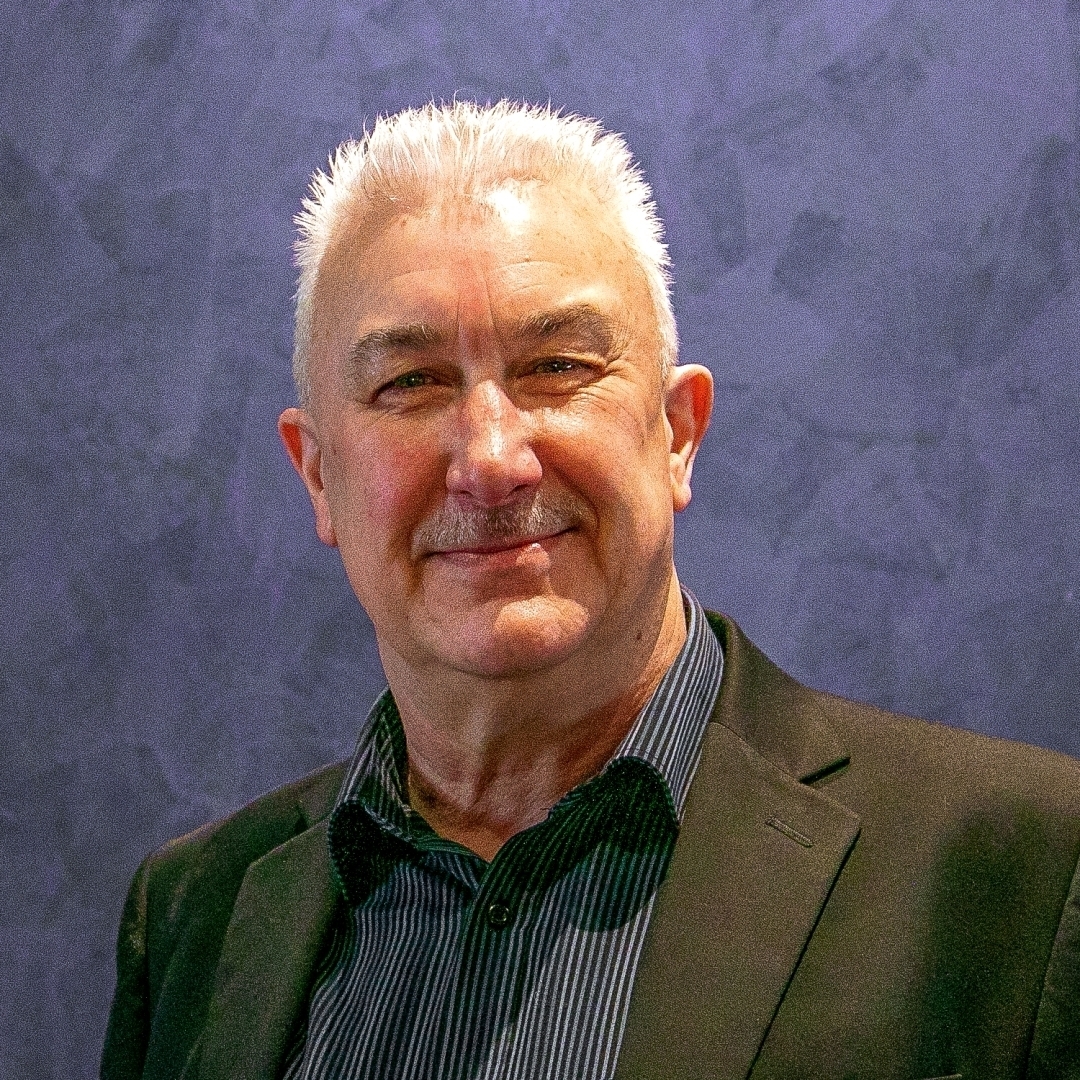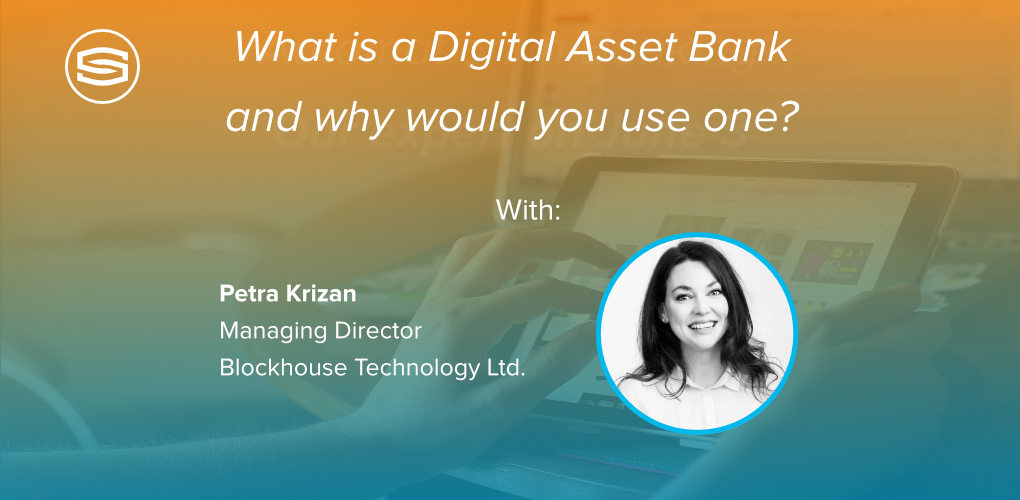
Insights & Opinions
What is a Digital Asset Bank and why would you use one?
Tue, 21 Feb 2023


When I first heard the term “Digital Asset Bank”, I couldn’t think of why I might need one in the future. While I believe that blockchain technology has many potential benefits and use cases, I do not hold any digital assets, and the only cryptocurrency I have ever used was held in a wallet. So why might I need a digital asset bank, either now or in the future?
Thankfully we had Petra Krizan, Managing Director of The Blockhouse Technology Ltd, Luxembourg as our guest on the show to explain what a Digital Asset Bank is and why we might all need to make use of one in the future.
Not just academic theory
The Blockhouse Technology Ltd is not your normal startup. It is a deep tech/cybersecurity spin-off of Oxford University in the UK, founded in 2018 by Bill Roscoe and Bangdao Chen, who worked there together. Almost all of the employees are PhDs and academics, and Petra pointed out that it can be a bit challenging at times to get them to focus on the commercial application of concepts as opposed to keeping everything at the theoretical level.
But, they have built a fully working platform that has already been deployed in the form of the Hainan Digital Asset Bank - so our discussion was not at all confined to theory.
Digital Wallet vs Digital Asset Bank
Today, the term “digital asset” is most commonly used in reference to NFTs or cryptocurrency. In order to buy or transact with these assets, you first need to set up a wallet on a compatible platform like Bitcoin or Ethereum. Petra highlighted that this process requires you to keep the private key of this wallet safe, something most people don’t really understand or appreciate the importance of. The process is tedious and too complicated for all but the most digitally literate of people. If you forget or lose your private key, you lose access to everything in your wallet!
This exact point resonated deeply with me as I’ve only ever had a single crypto wallet before. Despite the fact that I consider myself to be very technically literate, I lost all access to my private keys when I upgraded my phone. I hadn’t ever made any hard copy record of my private keys, and the wallet access was tied to my identity on the phone. Thankfully I only had a small amount of crypto left in my wallet at the time (less than 20 euro equivalent) - but it was a frustrating experience and I’ve never set up another crypto wallet since then!
The Digital Asset Bank technology platform developed by The Blockhouse guarantees to keep these keys safe for you, across all your different digital assets. This makes it far easier to keep track of, transact and interact with your digital assets by providing a user experience and interface similar to the digital banking interfaces we are all used to today.
But I was still unconvinced that I would need such a service in the future as I have no intention of getting into crypto right now.
Petra was quick to point out that more and more digital assets are being created by institutions, and soon, we may all have digital assets associated with us that we will need to keep track of and manage in a simpler way.
For example:
- ● Digital identity card
- ● Digital passport
- ● Digital driver’s licence
- ● Digital vehicle tax certificates
- ● Digital insurance documents
- ● Digital season tickets and access passes
- ● Digital deeds to your house
- ● Digital ownership documents for physical assets
- ● Digital share certificates
- ● And many more examples too numerous to mention
The first four on the above list are issued at the government level, and many governments are already building or providing digital gateway services and digital wallets to provide access to these documents, making them easier to use in both online and in-person situations.
But what about the rest of the documents, which could be issued on the blockchain instead of being sent to me as a PDF or digital document? If each third-party provider starts to issue these as digital assets on their own private (or even on a public) blockchain, then am I going to need to manage multiple wallets in order to access my documents?
This is exactly the problem that a digital asset bank of the future solves. It provides a single place, a “vault”, if you prefer, to store all the private keys to all my digital assets in one place, regardless of who they are issued by.
Now I could see the value of what Petra was talking about!
In addition to this, a digital asset bank could also enable complex transactions by leveraging data elements across all of the assets held in the vault. For example, if I was stopped in my car by the police, I could prove my identity, vehicle ownership and insurance status all via a single interface. Or if I sold my car, I could transfer ownership by validating my identity to the buyer and transferring the digital ownership deeds in exchange for payment, and all the records could be instantly updated with the new owner’s details. A digital asset bank could enable far more transactions than (just) monetary ones.
The “greening” of blockchain mining
All of this functionality could be achieved with legacy (database) technology, but Petra believes blockchain technology is the right choice when building anything essentially a “register”. Security is critical to providing this.
“Blockchain provides a secure and resilient infrastructure out of the box based on mathematically proven cryptography” (Petra Krizan)
The Blockhouse builds solutions on blockchain technology, which has as many opponents as it has supporters as it is frequently criticised for consuming large amounts of energy. In light of the rising global energy crisis, I was keen to hear Petra’s thoughts on how they could possibly build an energy-efficient, scalable solution.
Without getting too deep into the technical aspects, Petra explained that energy consumption is directly related to the different consensus algorithms used by a blockchain.
The original consensus mechanism is known as “proof of work”. Proof of work is the least energy-efficient algorithm in use, but it is recognised to be the most fair, secure and stable.
The next generation of consensus mechanisms is known as “proof of stake”. Proof of stake is far more efficient than proof of work, and many major platforms are migrating over to proof of stake in order to reduce their energy consumption. It is, however, criticised as being “less fair” than proof of work and has further weaknesses that we didn’t go into detail on.
The Blockhouse team is currently working on a completely new approach which they call “work your stake”. In this approach, they are aiming to combine the best elements of both existing algorithms in order to have the best security AND the best efficiency. For those that are interested in reading more about their work, you can read their research paper published here. This could potentially revolutionise and rapidly accelerate blockchain adoption for all sorts of use cases and industries.
So what could the future look like?
As a traditional bank is essentially a “register of transactions”, Petra believes that all of the existing services provided by a bank could just as easily be replicated by a platform built on blockchain technology. Therefore it stands to reason that a digital asset bank built on the kind of technology layer that The Blockhouse has developed, could, in the future, extend to offering savings, checking, deposit, mortgages, loan accounts and anything else required to operate a traditional bank.
The question is, will all banks eventually need to provide digital asset-related services, or will we see a new category of digital asset banks emerge in the future that co-exist within the financial services ecosystem?
We would love to hear your thoughts on the topic - please weigh in on the comments.


